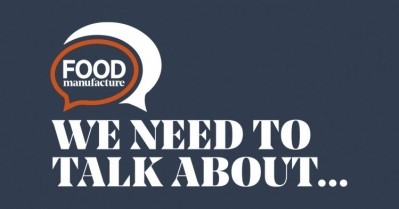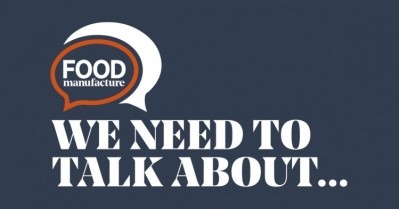Column: We need to talk about...
Cracking on in the permacrisis

Surely 2023 is the year we finally sigh with relief and return to the greater certainty and stability the food supply chain enjoyed before the pandemic? If you buy the palliative soothing of the Government, it will be.
By the middle of this year – perhaps sooner – inflation will be plummeting, the big border issues triggered by Brexit will finally be being sorted and COVID-19 will be a distant memory. Time to crack open the bubbly then! Cost-of-living crisis? What cost-of-living crisis?
Is it smooth sailing from here? Not quite.
It’s a narrative that’s tempting to believe, because volatility and a lot of unknowns tend to stoke anxiety levels. And because anything other than positive thinking without substance is seen as the enemy. Boo me then for being such an Eeyore!
There’s some truth in the rosy-tinted vision. Some storms will be subsiding, but some are open-ended. We have no evidence that the conflict between Russia and Ukraine will be resolved anytime soon, which means the current Black Sea Grain Initiative easing world grain supplies may not hold.
Even if it does, any potential conflict between Japan, Taiwan and China could make the Ukraine war’s supply chain impact look like a Sunday school tea party.
The barriers to trade introduced by Brexit show few signs of being resolved soon, whether or not that’s purely down to lack of strong leadership in Westminster. And the restructuring of the food industry’s labour market, entailing a shift from low-paid to highly skilled workers driven by increased automation, is dampened by lack of government funds and cash-strapped businesses’ reluctance to spend reserves.
Cost pressures created by many of these issues will keep fuelling the prevailing climate of permacrisis. There’s also a host of threats that have not materialised yet, some we can anticipate – the continuing spread of bird flu and African Swine Fever – and some ‘black swans’ we don’t yet know about.
Undergirding all these things, however, is the growing menace of environmental damage, increasing demand on international resources and climate change, the pace of which is increasing hourly. Even if we keep hacking through problems created by this issue, it will ensure that, like the heads of the hydra, two more will grow back to replace them. Extreme weather will challenge commodity availability and therefore raise costs further.
So what now for Britain’s food sector?
Where does this leave the UK food industry? First, we must accept things will not return to ‘the way things were’. The battle against global warming means even if by some miracle we reach a brief period of relative calm, we cannot become complacent, but must acclimatise ourselves to an intense period of prolonged change. The World Economic Forum’s 2023 Global Risks Report is right: we must prioritise tackling the short-term risk posed by the cost-of-living crisis at the same time as the longer-term climate emergency threat to mitigate both.
Second, the industry must lay aside politics and the usual concerns about commercial competition to work together to devise and share ideas and solutions. If we can do so, we have the potential for technological breakthroughs that enable us to participate in the next, green, industrial revolution.

















